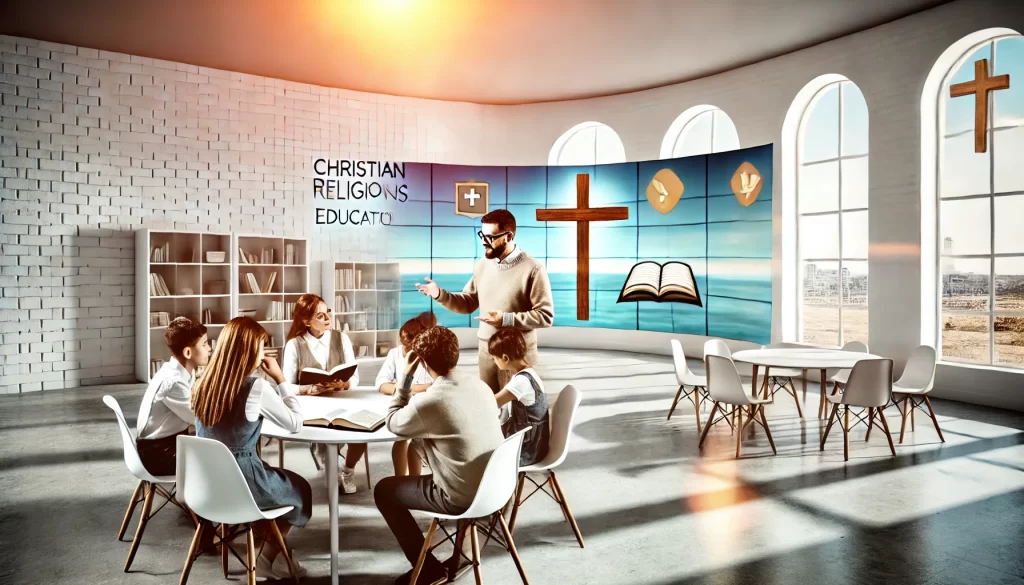What is Christian religious education? This question may seem straightforward, but the answer holds deep meaning and significance. Christian religious education goes beyond mere instruction in faith. It shapes lives, builds character, and lays a foundation of values that can guide a person throughout their lifetime. In this article, we will explore the essence of Christian religious education, how it impacts individuals, and why it is considered so vital by many. As we journey through this topic, you’ll discover the life-changing effects this form of education can have on children and adults alike.
What Is Christian Religious Education?

Understanding the Basics
Christian religious education is a process that teaches the principles, beliefs, and values of Christianity. It typically involves learning about the Bible, understanding the teachings of Jesus Christ, and applying Christian principles to everyday life. This education can occur in various settings, such as churches, schools, and even at home. However, what sets Christian religious education apart is its goal: informing and transforming lives.
The Purpose Behind Christian Religious Education
The primary purpose of Christian religious education is to nurture a person’s faith and help them develop a deep relationship with God. It’s not just about memorizing scriptures or attending church services. Instead, it is about internalizing Christian values and letting them guide decisions and actions. Through this education, individuals learn to love, serve, and lead with humility, reflecting the teachings of Christ in their daily lives.
The Life-Changing Impact of Christian Religious Education

Building Strong Moral Foundations
One of the most profound impacts of Christian religious education is establishing a strong moral foundation. From a young age, children are taught the difference between right and wrong, kindness and cruelty, and love and hate. These lessons are grounded in biblical teachings, offering a timeless moral and ethical guide. These individuals carry these lessons as they grow, helping them navigate life’s challenges with integrity and wisdom.
Fostering a Sense of Community
Christian religious education often occurs within a community setting, whether in a church, school, or small group. This communal aspect fosters a sense of belonging and support. Students learn not only from their teachers but also from their peers, creating a shared experience that strengthens their faith and commitment. This sense of community can be life-changing, providing a network of support that extends beyond the classroom.
Encouraging Personal Growth and Development
Christian religious education encourages personal growth by challenging individuals to reflect on their lives and relationships with God. Students are prompted to think critically about their beliefs and actions by studying the Bible and engaging in discussions. This reflection often leads to personal transformation, where individuals grow in their faith, character, and understanding of their purpose in life.
Promoting Peace and Compassion
At the heart of Christian religious education is the teaching of love, peace, and compassion. Students learn the importance of loving their neighbors, helping those in need, and promoting peace in their communities. These teachings are not just theoretical; they are meant to be implemented. By encouraging acts of kindness and service, Christian religious education instills a sense of responsibility to improve the world.
Also Read: Anti-Communist Education: Unveiling the Secrets of Freedom
The Role of Christian Religious Education in Today’s World
Addressing Modern Challenges with Timeless Wisdom
In a constantly changing world, the principles taught in Christian religious education provide a stable foundation. The wisdom found in Christian teachings can help navigate issues like ethical dilemmas, social justice, and personal crises. By applying these principles to contemporary issues, individuals can find peace and direction amidst the chaos of modern life.
Bridging Generations with Shared Values
Christian religious education also serves as a bridge between generations. It passes down values, traditions, and beliefs from one generation to the next, ensuring that the essence of Christianity remains alive and relevant. This intergenerational connection strengthens families and communities, providing a shared sense of identity and purpose.
Nurturing Future Leaders
Christian religious education plays a crucial role in nurturing future leaders by instilling strong moral values and a sense of purpose. Whether in their families, communities, or workplaces, individuals who have undergone this education often emerge as compassionate, ethical, and responsible leaders. They are equipped to make decisions that reflect their faith and contribute positively to society.
What is Christian religious education? It is a transformative journey that goes beyond the classroom and church pews. It is a lifelong process that shapes individuals into morally strong, compassionate, and purposeful members of society. The life-changing impact of Christian religious education is seen in the way it builds character, fosters community, and prepares individuals to face life’s challenges with faith and wisdom. As we continue to navigate an ever-changing world, the values and teachings imparted through Christian religious education remain as vital and relevant as ever.




